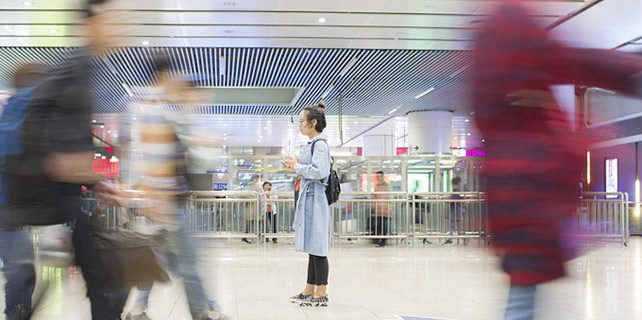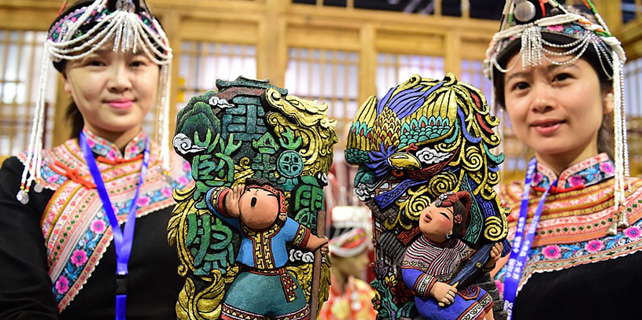Entreprenuership takes new beat among young Chinese
SHANGHAI - Huang Xin, 33, is one of more than 450 entrepreneurs at an international business incubator in Shanghai.
Currently, one out of every eight college graduates in Shanghai is self-employed, but only around five percent of startups survive, according to a 2016 report by MyCOS, a higher education research firm.
Founder's Space-Caohejing Development Zone, which opened three years ago, has seen 91 percent of its 1,000 startup residents survive.
Huang, founder of Arko Data, a consultation firm that uses big data to help companies like Bausch-Lume and Sephora with data collection and analysis, was one of the first entrepreneurs to start a business in the zone.
"Steve Hoffman, founder and CEO of Founder's Space is my role model. It is such an honor to set up my business in his incubator," said Huang.
Wang Zhonghao, manager of the incubator, said his team of 20-plus employees provides "nanny-like" services to entrepreneurs like Huang, most of whom are millennials.
From the industrial and commercial registration required to start a business, applying for patents, recruitment services to participation in road shows, the incubators have helped many startups find their footing.
The 14-square-km development park is the first Founder's Space incubator outside the United States. It is run jointly with Caohejing, a State-owned startup support arm under Shanghai municipal government.
On Thursday, China celebrated National Youth Day, in commemoration of the country's May Fourth Movement of 1919, when thousands of college students gathered in Beijing to protest against a treaty that transferred German control of east China's Shandong Province to Japan.
Shanghai municipal government Thursday issued a notice that encouraged financial organizations to provide startup business loans and grants to young entrepreneurs, and confirmed that city governments would prioritize financial support for new tech firms.
The notice was issued jointly with the city's development and reform commission and provides details on college graduate social insurance charges and land fees for new startups.
It also promised to expedite the construction of training bases and to support exchanges between different startup labs.
A team of over 600 experts has provided more than 460,000 consultation services for over 100,000 young entrepreneurs since 2000.
Li Wanwan, the recipient of an entrepreneurs' award in Shanghai's Xuhui district in 2013, is a member of the team. He speaks at forums about his experience with young entrepreneurs and also provides guidance via phone and instant massaging apps.
"In the beginning most young entrepreneurs face similar problems," he said. "My successes, and failures, can help them overcome many of these teething issues."
A report released by Shanghai Municipal Human Resources and Social Security Bureau showed that in 2016, one in eight Shanghai residents aged between 16 and 35 was an entrepreneur. The rate of young people starting businesses with their peers grew from 6.7 percent in 2009 to 12.4 percent in 2016.
"Shanghai has not only provided online guidance but has also created groups on apps such as WeChat to help young people understand policies and get access to the necessary services that will aid them in establishing their businesses," said Zhang Dezhi, an official with the bureau.









